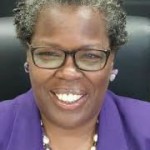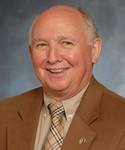
By Lindsay Street, Statehouse correspondent | An accurate population count in 2020 is needed to keep South Carolina’s share of billions of dollars in federal funding from decreasing, according to advocates.
South Carolina, where a third of its annual revenues comes from the federal government and more than 15 percent of its residents live in poverty, could be among those states seeing less federal money than needed to take care of its population due to an added question on the 2020 census of a responder’s and their household’s citizenship status, according to plaintiffs in a federal lawsuit. Advocates in the state say the question will cause immigrant households to not participate.
“It’s going to impact poor states like South Carolina tremendously,” S.C. Appleseed Legal Justice Center Director Sue Berkowitz told Statehouse Report.
The citizenship question was brought to trial this week after the U.S. Supreme Court declined to postpone the trial at the request of the U.S. Justice Department . How the trial plays out could mean the difference between a low participation rate or a typical participation rate among immigrant communities, advocates say. And if participation is low, federal dollars could go down, advocates say.

While South Carolina has a comparatively low Hispanic population, a recent estimate said 5.4 percent of S.C. households have at least one non-citizen.
“(State lawmakers) should take it seriously because it’s tied to revenue and lawmakers love to spend revenue on tax relief and various other incentives to businesses,” Democratic S.C. Rep. Gilda Cobb Hunter of Orangeburg said. “If there is a reduced population, that’s reduced revenue, and if you’ve got reduced revenue, that’s less money you have to spend on things you deem important.”
‘Super important’ to be counted
No funds have been set aside in the annual state budget to aid with the population count since fiscal year 2007-08 when a proviso set aside $1 million to promote and encourage participation in the census.
Charleston Republican Sen. Paul Campbell said South Carolina’s non-citizen population is likely too low for it to matter much to state coffers.
“I don’t think it’s going to be that much; if we were on the border maybe,” Campbell said.

Campbell added that a correct population count is “super important” to the state, saying that the growing population could lead to increased federal representation in Congress.
S.C. House Ways and Means Chairman Brian White of Anderson said House Speaker Jay Lucas of Darlington would be best suited to speak on the issue, but Lucas’ office declined an interview request.
Cobb Hunter said correct counting of the census is not a partisan issue.
“There are people in South Carolina who say we don’t have large immigrant communities. I’d suggest they look again. We have a growing Hispanic population in this state,” she said. “When you don’t count people, you lose.”
Population counts and federal money
South Carolina is among the most dependent states on federal dollars, according to a study by WalletHub released in March. According to S.C. Senate Finance staff, more than $8 billion in the state’s revenues come from the federal government, accounting for roughly a third of overall funds.
South Carolina and its local governments also receive federal grants. According to data from the S.C. Revenue and Fiscal Affairs Office, 85 percent of federal government obligations in grants to state and local governments in fiscal year 1999-2000, were distributed on the basis of formulas that use data such as state population and personal income. The exact amount of federal funds given to South Carolina by these grants is currently not available, according to RFA staff.
According to a 2017 U.S. Census report, 132 federal programs used Census Bureau data to distribute more than $675 billion in funds nationwide during fiscal year 2015. Examples of federally-funded programs include: medical assistance, Supplement Nutrition Assistance Program, school breakfast programs, section 8 housing assistance, Head Start, Medicare, block grants related to substance abuse, wildlife restoration, adoption assistance and more.
Community-led effort
Cobb Hunter said while she hasn’t heard much from her fellow S.C. lawmakers on trying to engage the population to ensure a proper headcount, she has heard from lawmakers in other states. Many are working on creating local census commissions.

Cobb Hunter said she is talking with Orangeburg County elected officials to promote participation in the census through such a commission.
“Local government, which has more to lose than state government, can set up local commissions and make sure all stakeholders are involved to make sure everyone is counted,” she said.
Berkowitz said her organization is also working with other organizations to ensure an accurate count.
“We are going to do a lot of work in doing outreach and organizing around census work,” she said. “We have to. The census is going to be one of the most important things that will be happening over the next 10 years that will impact low-income communities and communities of color.”
- Have a comment? Send to: feedback@statehousereport.com
















 We Can Do Better, South Carolina!
We Can Do Better, South Carolina!